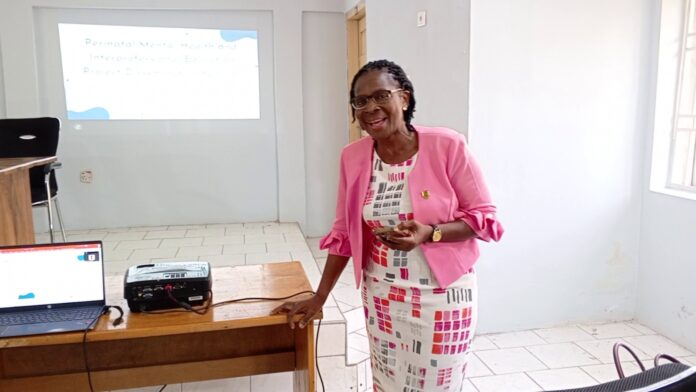The stigma surrounding unplanned pregnancies among girls was the focus of a recent research dissemination seminar organized under the Perinatal Mental Health and Interprofessional Education Project.
The seminar emphasized the need for compassion, support, and mental health protection for young pregnant girls.
Research by the Perinatal Mental Health and Interprofessional Education Project, conducted in both Ghana and Uganda, shows that social support from family, partners, and peers can significantly alleviate these mental health challenges.
Project lead, Professor Victoria Bam, Principal Investigator from the School of Nursing and Midwifery at the Kwame Nkrumah University of Science and Technology (KNUST), highlighted the severe emotional toll unplanned pregnancies can have on girls.
“Pregnancy can bring anxiety, depression, and even suicidal thoughts, especially when these young women face judgment from parents, friends, churches, or communities,” she stated.
The stigma often forces them into isolation, making it difficult to cope with the physical, emotional, and social challenges of pregnancy.
“Support helps these young girls stay emotionally stable and reduces the stress they face,” Professor Bam added.
The project’s findings advocate for integrating mental health care into antenatal and postnatal services. Professor Bam called for health workers to address the emotional needs of young pregnant girls, ensuring their mental well-being is prioritized alongside their physical health.
Professor Bam stressed that pregnancy should not mean the end of a girl’s education or aspirations.
The project calls for the incorporation of policies that support pregnant girls in continuing their education, challenging the societal norm that equates unplanned pregnancy with failure.
This seminar marked the first phase of sharing the project’s findings with healthcare providers and stakeholders. As the project progresses, these insights will be disseminated further to inform reproductive health protocols and clinical practices. The ultimate goal is to create a framework where young pregnant girls receive the care, support, and encouragement they need to lead fulfilling lives.
Professor Bam’s message is clear: stigmatizing young girls for unplanned pregnancies does more harm than good. By fostering empathy and understanding, families, communities, and healthcare systems can play a pivotal role in protecting their mental health and empowering them to overcome challenges.
This research dissemination seminar underscores the critical need to prioritize mental health care, social support, and educational opportunities for pregnant girls, paving the way for a more inclusive and compassionate society.
The District Coordinator for Mental Health Services in Ejisu, Millicent Nyamekye, highlighted a growing concern about girls facing mental health challenges due to unplanned pregnancies. According to her, many of these girls lack adequate education on pregnancy care, leading to complications, including psychotic disorders.
She also emphasizes the importance of education on family planning methods, particularly non-hormonal options like the IUD, which she personally endorses as both a client and advocate.
Nyamekye calls on the country’s health sector to unite in supporting these efforts.




